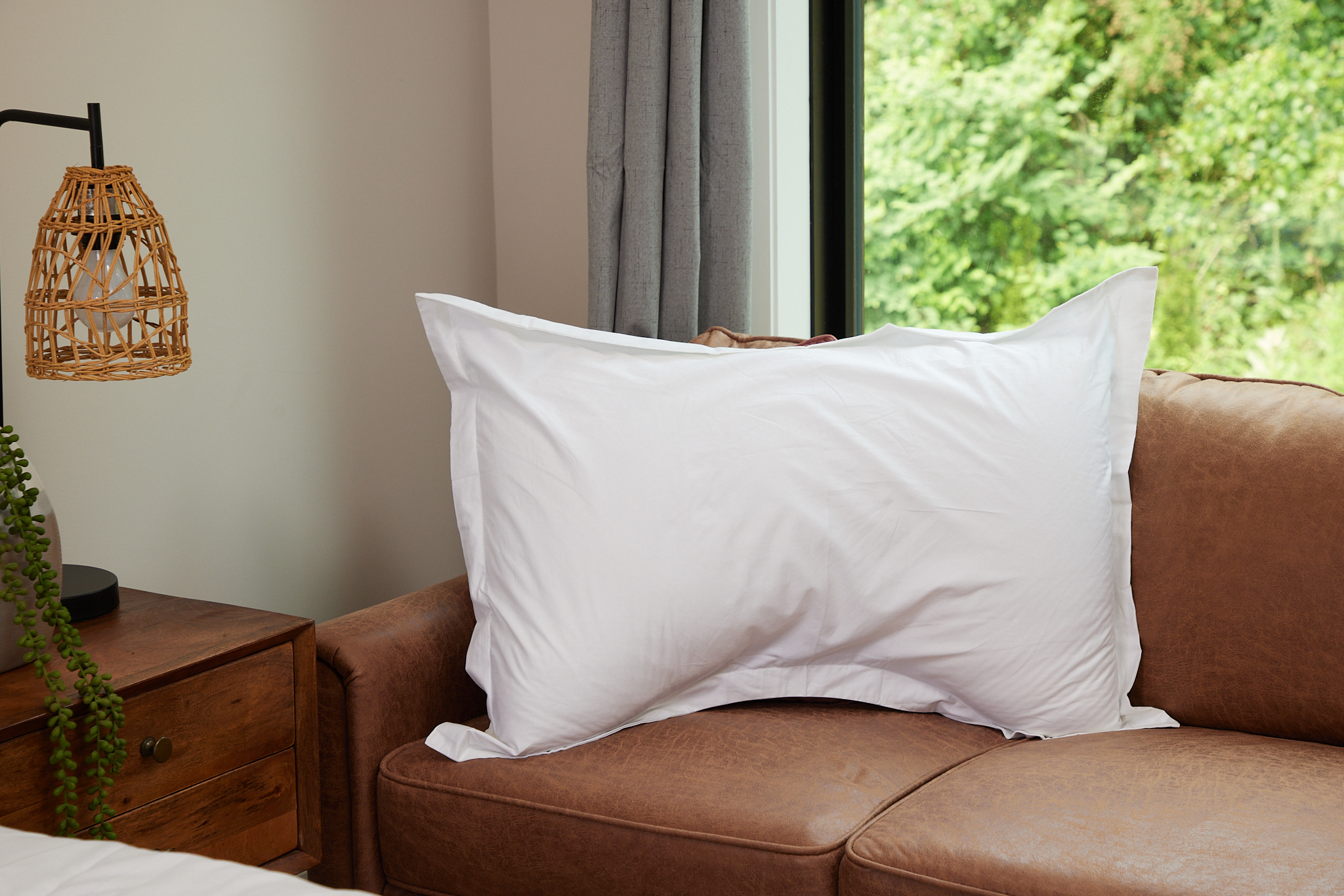We all have major goals and dreams when it comes to reaching the top at work. In order to make it to the top, we believe we need to make sacrifices. That can mean we come in earlier and leave later, continue work when we get home, or volunteer for extra assignments.
While hard work does pay off, there are some things you should never sacrifice. One of these things is your sleep. While the nerves and pressure of work may lead you to burning the candle at both ends, extended sleep deprivation isn’t sustainable both for your work and more importantly your health.
Let’s explain some of the issues you’d encounter if you don’t get enough sleep, and how it can ultimately affect your career.
(In)ability to think critically and make decisions
Being able to think straight and quickly is required for anyone to complete tasks at hand throughout the day. For some jobs, you are expected to think quickly and logically in order to be both efficient and thorough. You’ve probably noticed that when you start to feel tired, you aren’t able to think as critically compared to when you were wide awake.
If you’ve felt off when you’re tired, you’re not alone. In fact, being sleep deprived has been shown to interfere with your brain cell’s functionality. Researchers at UCLA found that some of your brain cells won’t function properly and have difficulty communicating with one another when you don’t get quality sleep. As the brain cells begin to slow down, your ability to process information is hampered as a result. And if you have difficulty thinking, you’ll likely have difficulty making sound decisions.
If you are in a position where you need to make critical decisions every day, having a lack of sleep can significantly hamper your ability to make proper decisions. A study out of Switzerland had a group of participants aged 18-28 get either five hours of sleep, while the other group got eight. Each group was given a task to make a decision each morning for a week as to either receiving a set amount of money without any risk, or risking the money for a higher amount with the chance of getting nothing should they lose. Over time, more of the participants in the group that only slept five hours a night would take the risk, to the point where almost all members of the group did
Out of focus
Have you ever noticed that you tend to drift off and have difficulty maintaining focus when you’re tired? Whenever you are in work mode, you know you have to maintain your focus either on a conversation or a task at hand, despite all the noises and distractions surrounding you. The ability to focus on one specific task or conversation at a time is known as “selective attention”. Sleep deprivation is known to impair selective attention, which can make work much more difficult.
Students at Willamette University in Oregon conducted a study where one group slept normally, and another group was kept awake and had 24 hours of sleep deprivation. Both groups were given pairs of 2.5-3.5 minute recordings of children’s stories that were placed on separate stereo tracks, and asked to maintain focus on one of the tracks, while ignoring the other track. The study showed that those who slept regularly were easily able to focus on only one track, while the sleep deprived group struggled to maintain their focus on only one track.
“I can’t remember…”
There’s nothing more frustrating than when you just can’t seem to recall any memory you need to get a task done or to give information to a colleague. You’ve probably noticed it takes a little longer to remember something when you feel tired. And if you’ve ever tried to pull an all-nighter the night before an exam and couldn’t remember a single thing you studied, your lack of sleep is likely to blame.
In order for your memory to work efficiently, your brain needs you to rest. While you are sleeping, your brain takes in the new information you gained while you were awake, and starts forming the new memories. This brain function is known as consolidation. While the acquisition and recall functions occur while you’re awake, consolidation only happens when you’re asleep.
While scientists aren’t exactly sure how sleep and memory intertwine, it’s believed that two parts of the brain, the hippocampus and neocortex, communicate with each other while you sleep. The hippocampus shares the new memories from while you were awake with the neocortex, which takes these memories and processes them to be stored for the long term. Whenever you lack sleep, the memories get stuck in the hippocampus, according to a study at the University of California, Berkeley. And this doesn’t only happen if you are 24+ hours sleep deprived. Studies have shown that even five hours of sleep deprivation can cause loss of connectivity between neurons of the hippocampus.
A creative rut
You’ve probably heard interviews with singers, actors and writers who claim they create their biggest hits by staying up all night, time and time again. “Great!”, you think, “I can stay up all night and I’ll finally get past this creative block I’m facing!” You might want to hold off on that thought.
Studies have shown that REM sleep can be critical to getting the creative juices flowing and help with problem solving. A study conducted by the University of California San Diego placed participants into three groups. Group 1 was allowed to get rest, but not allowed to sleep. Group 2 could go into non-REM sleep, but not allowed to enter REM sleep. Group 3 was allowed complete sleep. The conclusion of the study found that group 3 had the best creative thinking ability and that 40% of the participants in that group scored higher on creativity tests than those in groups 1 and 2.
Still not fully convinced that getting to sleep helps the creative side? Here’s some things you may have seen or heard that actually came from dreams:
- Google: Larry Page, the founder of Google, woke up from a dream in the middle of the night where he imagined he could download the entire Internet onto old computers. He did some math and realized it was possible, and began to create Google.
- Albert Einstein’s Theory of General Relativity came from a dream he had where he witnessed a farmer activating an electric fence. In the dream, Einstein said he saw all the cows jump at once in the dream, while the farmer in the dream said each cow jumped one by one.
- Paul McCartney says the melody for the hit song “Yesterday” was from a dream he had.
- James Cameron said he got the idea for the successful “The Terminator” franchise while having a fever dream.
The grouchy colleague
Remember when you were a kid, and your parents seemed grouchy after a very long day at work that wore them out? Have you ever felt more anxious when you have been awake far too long? Scientists say there’s a connection between your emotions and sleep.
The root cause of negative emotions, such as anger, rage, and sadness, is the Amygdala. The Amygdala is an almond shaped cluster inside your brain that creates these emotional responses. When you are deprived of sleep, the activity within the Amygdala increases. While the activity increases, the part of your brain that keeps the Amygdala at bay becomes disconnected. Long story short, your negative emotions increase, and your ability to keep these emotions under control decreases.
It has also been shown that suffering long bouts with insomnia can increase chances of being diagnosed with depression and anxiety. In fact, those who suffer from insomnia are 10 times more likely to have clinical depression and 17 times more likely to have clinical anxiety.
Of course, this means that sleep deprivation will have a negative effect on your positive moods. Studies show that people who suffer from sleep deprivation feel less friendly and empathic. One study actually showed some people who hit an achievement didn’t feel any positive affect on their mood when sleep deprived.
Accident/Mistake prone
Taking pride in your work is probably important to you. While you understand that mistakes are part of work, you are methodical and check your work to make sure avoidable mistakes are caught. And in some lines of work, avoiding mistakes can prevent serious injuries, or even death!
One study indicated that sleep deprivation triples the number of lapses in judgment. For people who work around machinery or where driving is their job, this can lead to very serious consequences. Many studies have shown that workers who are highly sleep deprived are 70% more likely to be involved in a workplace accident than colleagues who had proper sleep.












